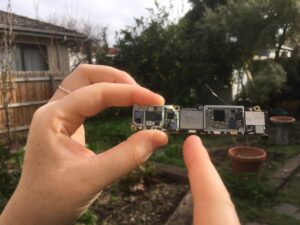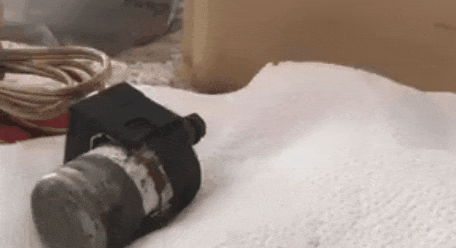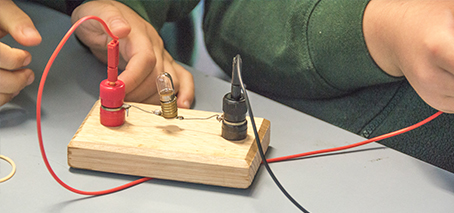
The postage-stamp sized chip at the heart of an iPhone 5 has around one billion transistors: illustrating Moore’s Law at work!
In 2020, FLEET continued the Year 10 ‘Future electronics’ course launched the year before in partnership with John Monash Science School (JMSS), Victoria.
As well as covering the history of semiconductors, Moore’s Law and computing, the course introduces quantum physics at an intuitive level (with minimal maths) and expands on this fundamental understanding to explain complex, useful quantum states such as superfluids and topological materials.
This year, FLEET and our teacher partners faced the additional challenge of Covid-19 restrictions on in-class visits, rewriting content on the go to accommodate talks delivered over Zoom, with particular challenges for hands-on class exercises.
FLEET members helped to develop and deliver the courses, building valuable skills within the Centre, and exposing students to a much more diverse cast of physicists than the thoroughly ‘pale, stale and male’ 19th-century gentlemen whose names and biographies are traditionally taught in physics classes.
Centre lab researchers also delivered ‘virtual lab tours’, with a show-and-tell tour via webcam, showing JMSS students at Clayton around the FLEET laboratories at UNSW in Sydney (materials science), and Swinburne University of Technology in Hawthorn (cold-atom optics). (One of several virtual lab tour experiments in 2020.)

Mechanical switches, glass valves, transistor radio and breadboard – laid out for class on transistors
Within the overriding structure of putting FLEET science into context, content taught covered the spectrum from fundamental atomic and quantum physics to applied computing and technology, including:
- An atomic understanding of electrical conduction
- Function and construction of transistors, and their use in increasingly-complex Boolean logic circuits
- The role of binary numbers in digital computing
- Quantum science, including wave-particle duality and uncertainty
- Superfluids and excitons
- Topology and topological materials
- Ultra-cold atomic physics
- Quantum computing (with the help of the Australian Research Council Centre of Excellence for Quantum Computation and Communication Technology, CQC2T)
- Graphene and other two-dimensional (2D) materials.
This diversity meant that most student were able to find at least one topic they were passionately interested in.
“I liked learning about the different areas of physics FLEET is involved in. The guest speakers provided a nice insight into applications of the topics we learn in class and how they apply to real-life situations.” —student
“It was interesting to cover so many topics not normally talked about in normal classes. I liked the variety of topics we studied, as we learned a small amount of interesting information about each topic.” —student
Without the need for wholesale rewriting, FLEET and JMSS will repeat the unit in 2021 and expand to at least one other school.
—this is an extract from the 2020 FLEET annual report [read the full report online]

